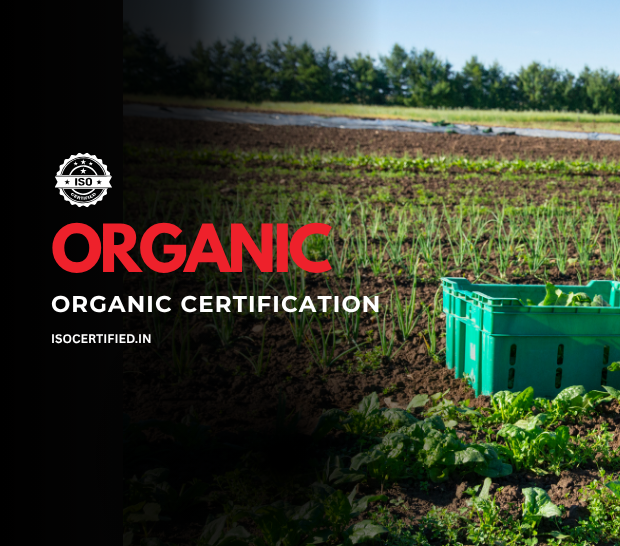- Globally Recognized Certification
ORGANIC - Organic Certification
Organic Certification verifies that agricultural products are grown, processed, and handled according to strict organic standards prohibiting synthetic pesticides, fertilizers, and genetically modified organisms. This certification ensures sustainable farming practices, environmental protection, and product integrity from farm to consumer.
Request A Free Quote
What is ORGANIC – Organic Certification
Organic Certification is an official verification process confirming that agricultural products, livestock, and processed foods meet established organic production standards enforced by governmental and independent certification bodies. This certification mandates farming without synthetic chemicals, prohibited pesticides, artificial fertilizers, antibiotics, or growth hormones while requiring soil health management, biodiversity conservation, and ecological balance maintenance. Organic standards encompass crop rotation, composting, biological pest control, and natural resource conservation practices that build long-term agricultural sustainability.
The certification process involves comprehensive farm inspections, detailed record-keeping verification, soil and water testing, buffer zone establishment, and annual compliance audits. Certified operations must maintain complete segregation between organic and conventional products, implement contamination prevention protocols, and document all inputs and production activities. Processing facilities require separate equipment, thorough cleaning procedures, and strict ingredient sourcing controls ensuring organic integrity throughout handling, manufacturing, packaging, and distribution chains.
The standard emphasizes leadership commitment, evidence-based decision making, and continuous improvement through the Plan-Do-Check-Act cycle. Organizations certified to ISO 9001:2015 prove their ability to consistently provide products and services that meet customer expectations while complying with applicable statutory and regulatory requirements, enhancing their competitive advantage in global markets.

- Benifits
Key Benefits of ORGANIC Certification
This certification commands premium pricing, expands market opportunities, meets consumer demand for chemical-free products, and demonstrates commitment to environmental stewardship and sustainable agriculture practices.
Premium Price Realization
Achieve significantly higher product prices as consumers willingly pay premium rates for certified organic products over conventional alternatives.
Growing Market Access
Tap into rapidly expanding organic market segments with dedicated retail channels, specialty stores, and mainstream retailers prioritizing organic offerings.
Consumer Trust Building
Gain credible third-party verification that eliminates consumer skepticism and provides assurance of genuine organic production methods.
Environmental Sustainability Contribution
Protect soil health, water quality, and biodiversity while reducing agricultural chemical pollution and supporting ecological farming systems.
- Standard Process
Your Path to ISO Certification
Four straightforward steps to achieve ISO certification: consultation, documentation, payment, and certificate delivery—all managed remotely for your convenience.
Free Consultation
Connect with our ISO experts to discuss your certification needs and requirements.
E-mail Documents
Submit your organization's documents and information securely via email.
Make Payment Online
Complete your payment conveniently through our secure online payment gateway.
Get ISO Certificate
Receive your internationally recognized ISO certification upon successful audit completion.
- Which Industries?
Who Needs This
Farmers, food processors, handlers, distributors, and retailers selling products labeled as organic require this certification. Operations producing fruits, vegetables, grains, dairy, meat, or processed foods for organic markets must obtain verified credentials.
Agriculture & Crop Production
Dairy & Livestock Farming
Food Processing & Manufacturing
Natural Products & Supplements
- Ongoing Requirements
Compliance & Maintenance
Post-certification, organizations must fulfill ongoing requirements including annual surveillance audits, internal reviews, and recertification to maintain their ISO certificate validity.
Annual Surveillance Audits
Certification bodies conduct yearly audits to verify continuous compliance with ISO standards and ensure your management system remains effective and up-to-date.
Recertification Every 3 Years
Complete recertification audit required every three years to renew your ISO certificate and demonstrate sustained commitment to quality management excellence.
Internal Audits & Reviews
Regular internal audits and management reviews must be conducted to monitor performance, identify improvements, and prepare for external certification audits.
Documentation & Training Updates
Maintain current documentation, update procedures for process changes, and provide ongoing training to employees on ISO requirements and their responsibilities.
